Emily Hartridge: Boyfriend 'does not blame driver for e-scooter death'
- Published
Jake Hazell wants to speak openly about his mental health struggles since his girlfriend died.
The boyfriend of a TV presenter and YouTuber killed in a crash on her electric scooter has said he does not blame a lorry driver for her death.
Emily Hartridge, 35, was on her way to a fertility clinic in July when she was involved in the UK's first fatal e-scooter crash, in Battersea, London.
Jake Hazell, 27, has suffered from panic attacks and has been campaigning for mental health awareness.
A file is being prepared for the coroner, police say.
No one has been arrested over the death.

Emily Hartridge and Jake Hazell both used social media to share health and lifestyle advice
Mr Hazell said he regretted buying the e-scooter as a present for Ms Hartridge - and he was constantly reminded of her death as he "sees them on the road all the time".
It is illegal to ride an e-scooter on public roads, pavements and cycleways, but Mr Hazell feels more regulations need to be brought in so "no one else loses their life on an e-scooter again".

Ms Hartridge had built up a large social media presence
"It is an adult toy and obviously there is a risk which comes with it," he said.
"Personally speaking, the road had a massive part to play in Emily's accident.
"The condition of the road was shocking. It wasn't Emily or the driver's fault - and in fact I don't blame the driver whatsoever."
The Department for Transport (DfT) said it was considering the use of e-scooters as part of a regulatory review announced last year.
Wandsworth Council, which maintains the road where the crash happened, said it would be inappropriate to comment ahead of an inquest, which will be held at Westminster Coroner's Court on a date yet to be set.
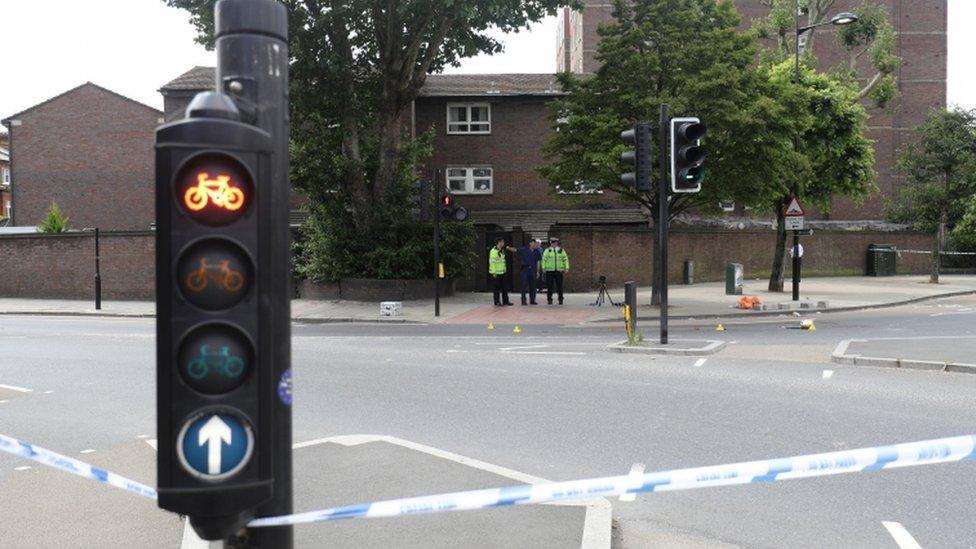
The fatal crash happened at the junction of Queenstown Road and Queen's Circus
Mr Hazell added: "One week after Emily's death they fixed the road and that for me was gut wrenching."
He met Ms Hartridge as the pair of them worked as fitness instructors and Mr Hazell said they both suffered from anxiety and spoke about it publicly.
"That's what connected us," Mr Hazell said. "Emily encouraged me, especially being a guy, to talk more about how I felt from my mental health point of view.
"She was an incredible source of motivation for me, so it was really challenging to continue to talk about it when she had passed away.
"For those who knew Emily she was just incredible - such an amazing person to be around and to call her my girlfriend was literally the best I felt in my life.
"But what she has taught me has got me through. I feel close to her, I still do the Instagram, still do the YouTube and continue her message that it is OK to have a tough time."
Mr Hazell said the death of Ms Hartridge was "the worst thing" he had been through - and in the past he admitted he would turn to drink and drugs to cope with his anxiety.
He said: "The only time I was not anxious was when I was either drunk or high. Unfortunately that led me down a not so nice path and I ended up in rehab to get clean and sober.
"Getting clean and sober affected my mental health, when I gave that up my anxiety got really bad."
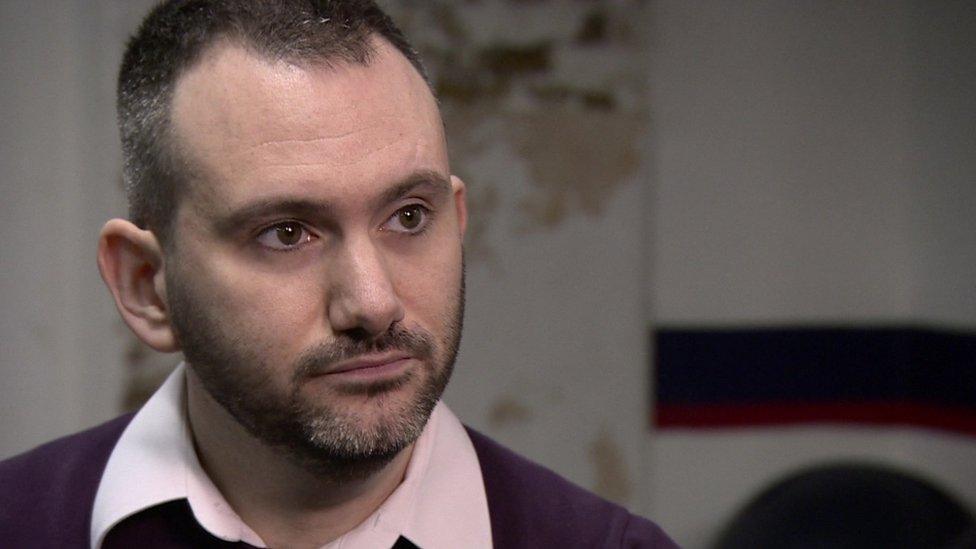
Mr Hazell's therapist Howard Cooper says there is a taboo that people have to soldier on amid grief
Instead, he has taken a course of rapid change therapy and has learnt that "negative thoughts were not threats".
Mr Hazell's therapist Howard Cooper praised Mr Hazell for being a "great ambassador" for talking openly about his traumatic and public loss.
He said: "With grief, anxiety and panic there is a taboo that people have to soldier on - but sometimes it is a case of seeing what hasn't yet been seen.
"Jake is in a terrible situation and a lot of anxiety has come around about what is life going to be like now - making all sorts of terrible images, which is all understandable."

Analysis
By BBC London's transport correspondent Tom Edwards
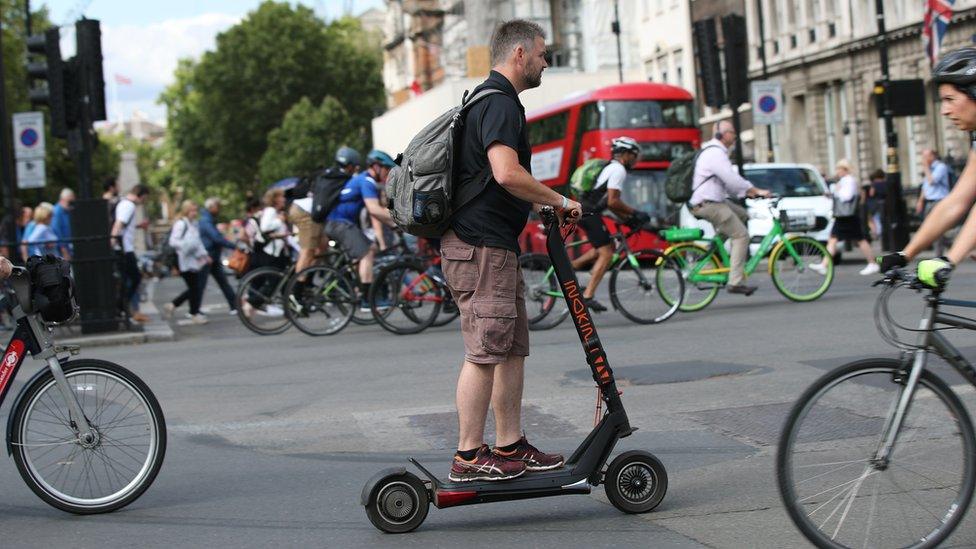
Stand on the corner of a busy street in London in rush hour and it won't be long until you see someone whizzing by on an e-scooter.
There are lots of them being used - whatever the law says about them being illegal on public land.
Users say they are quick, easy to use and have low emissions. They say they are part of the solution providing low carbon mobility in a modern city. They're even being trialled on the Olympic Park.
Opponents say because they are unregulated some of them can travel well over 30mph and they're not roadworthy.
Critics say they're dangerous especially as other road users don't expect to come across them.
The government has been looking at e-scooters and it might change the law and regulate them but it is taking time.
And at the moment, the tech has overtaken the regulation and the law is being widely ignored.
- Published26 July 2019
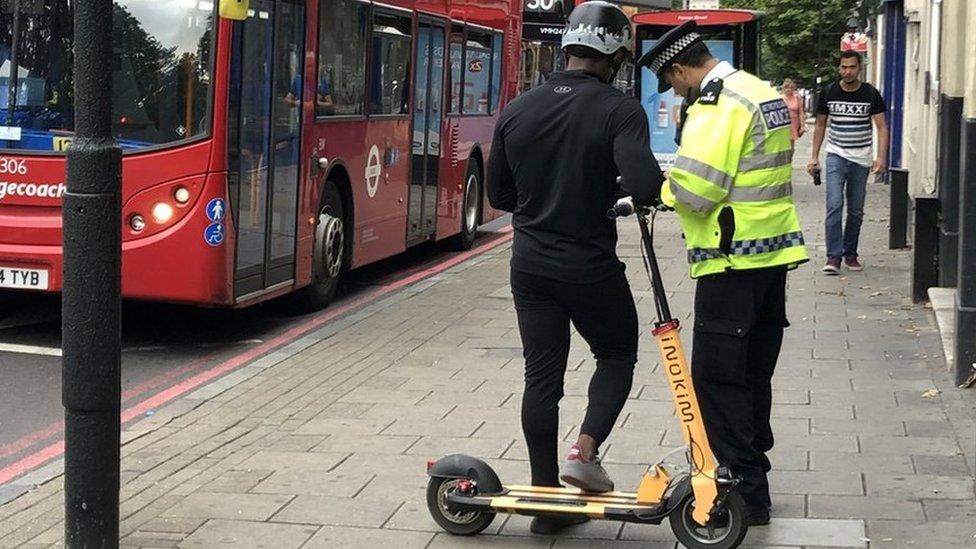
- Published22 March 2022
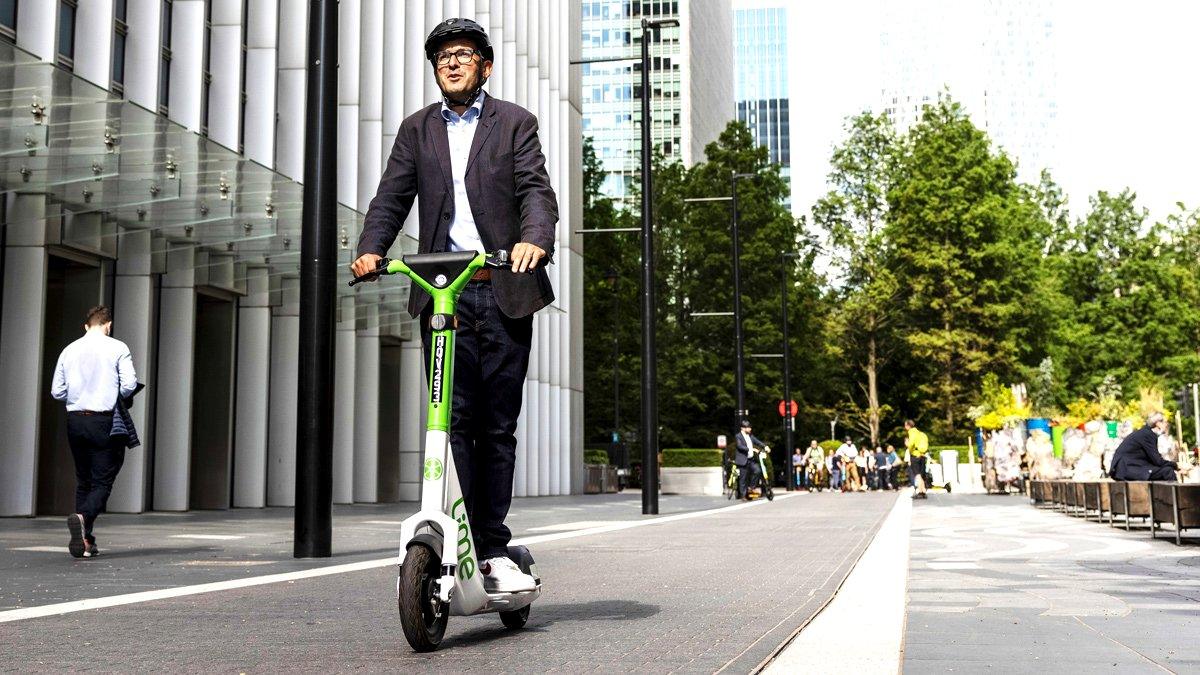
- Published13 July 2019
